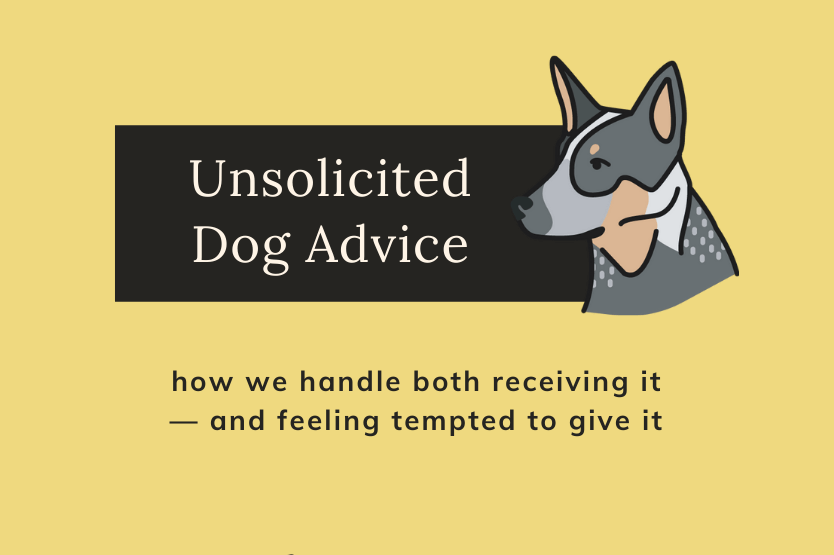Unsolicited advice is something I’ve often struggled with in both directions. It’s easy to feel defensive when receiving it… and sometimes it’s tempting to give it, too!
Here are a few of the ways I’ve started to approach unsolicited advice more healthily. (Try to, anyway.)
When I’m receiving unsolicited advice
Assume positive intent. Assuming people mean well helps me not feel so angry or bitter.
Take some space before responding. A few minutes (or hours or days!) can help me be in a better headspace to engage in conversation.
Reflect on our reasoning, thought process, and progress. Am I truly happy with our life? Am I feeling defensive, and if so, why?
Think about if their input has real merit. Could I actually take something away from this?
A few go-to responses to unsolicited advice
“Thank you for your concern! We’re working with a [trainer, vet, etc.] and are really happy with how things are going.”
“Our story highlights and website share more details about our individual training approach and lifestyle. We’re always here to answer specific questions!”
“I appreciate you reaching out. We’ve thought about this a lot, and we aren’t looking for additional input at this time.”
Setting boundaries is healthy
I don’t “owe” anyone a response — especially when they come out of left field telling me what I should or shouldn’t do.
But I’ve also found that the majority of the time folks do mean well. Being polite, if I have the emotional capacity, goes a long way.
I might be frustrated from getting the same comment a dozen times, but they usually don’t know they aren’t the first!
When I’m tempted to give unsolicited advice
Check my self-righteousness. Am I trying to feel superior or compensate for my own insecurities?
Remind myself that I don’t know the nuances of their dog, lifestyle, and situation. Everyone is different. There is so much grey area!
I ask questions instead of making statements
Asking questions gives folks the opportunity to provide additional information and explain their thought processes (if they want to).
This empowers them to respond openly — and enables us to have a truly productive conversation! — instead of putting them on the defensive that I think they’re “wrong”.
Here are some of my the questions I ask:
Instead of “you should do this” or “you should try this” I ask something like “I’m curious — would you tell me why you’re approaching it this way?”
Instead of “that’s not how I’d do it” ask “have you ever thought about doing it this way?”
The internet can be a tough place for tone and nuance
But it’s not a lost cause! Simple changes to the way I communicate have helped me enjoy more productive (and less stressful) interactions on social media.




